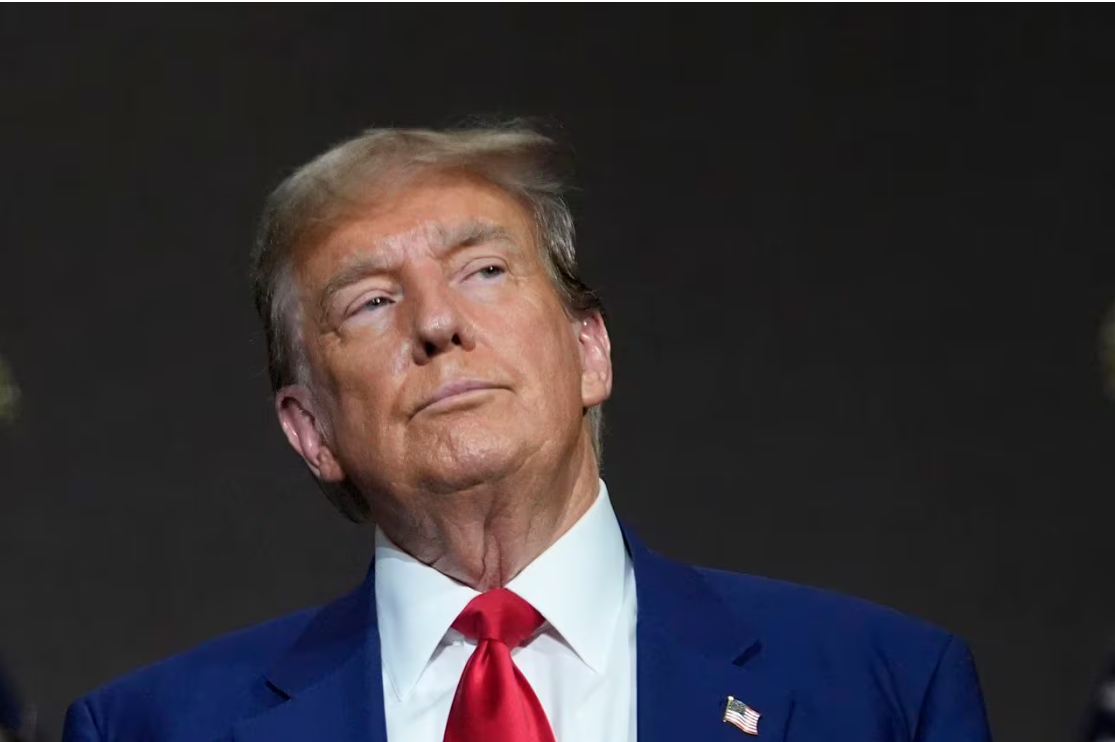特别检察官严厉斥责法官在特朗普案件中的陪审团指示令

【中美创新时报2024 年 4 月4 日编译讯】特别顾问杰克·史密斯(Jack Smith)警告负责监督唐纳德·特朗普机密文件案的法官,她正在追求一个“错误”的法律前提,并表示,如果她裁定联邦记录法可以保护前总统免受起诉,他可能会向上级法院提出上诉 。对此,《华盛顿邮报》记者佩里·斯坦进行了下述报道。
在接近午夜的一份法律文件中,史密斯办公室强烈反对美国地区法官艾琳·M·坎农 (Aileen M. Cannon) 的一项不寻常指示——资深国家安全律师和前法官表示,这一指示严重误解了《总统记录法》和与机密文件相关的法律。
史密斯的诉讼代表了法官和检察官之间迄今为止最明显和最高风险的对抗,这表明坎农将《总统记录法》合法化作为辩护理由的裁决可能会在多大程度上消除这一历史性案件。它提出了一种可能性,即政府对此类裁决提出上诉可能会将审判推迟到 11 月总统选举之后,而特朗普是共和党推定的总统选举候选人。
上个月,坎农命令该案的辩护律师和检察官根据对 PRA 的两种不同且备受争议的解读,提交假设的陪审团指示。
史密斯回应称,坎农正在追求一个“根本上有缺陷的法律前提”,即该法律在某种程度上凌驾于《间谍法》第 793 条之上,特朗普被指控在他的总统任期结束后在佛罗里达州海湖庄园私人俱乐部藏匿数百份机密文件,违反了该法案。
史密斯写道:“这个法律前提是错误的,反映该前提的第 793 条陪审团指示将扭曲审判。” 他说,《总统记录法》“根本不应该在审判中发挥任何作用。”
自 2020 年底以来一直坐在替补席上的特朗普提名人坎农如何回应史密斯众所周知的射门将至关重要。 如果她做出不利于检察官的裁决,他可以上诉。如果她放弃有争议的法律前提,那么当她决定审前听证会时间表并设定审判日期时,这个问题可能会逐渐消失。
尽管检察官敦促她迅速采取行动,但坎农在做出许多决定方面进展缓慢,而且在这个问题上,她也可能只是需要时间来采取下一步行动。 与此同时,特朗普定于 4 月 15 日开始接受纽约州一桩案件的审判,该案指控他伪造商业记录以掩盖 2016 年大选期间支付的封口费。 另外两起刑事案件,与特朗普涉嫌阻止乔·拜登赢得 2020 年大选胜利有关,目前已陷入预审程序和上诉之中。
周二晚上的文件敦促坎农迅速就《总统记录法》是否与此案相关作出裁决,以便检察官可以在佛罗里达州审判之前向更高一级法院上诉任何此类决定,该审判比原定的五月下旬开始日期推迟了,但尚未 却被重新安排。
史密斯和许多法律学者一样表示,记录法与特朗普被指控犯下的国家安全罪无关,他警告说,等到审判开始后再就这个问题做出裁决,可能会导致起诉案件在案件审理之前就注定失败。 陪审团。
他写道:“如果法院推迟就这一基本法律问题做出决定,就会给审判带来严重的延误,更糟糕的是,会阻止政府在面临危险之前寻求审查。”
尽管史密斯质疑坎农命令的前提,但他还是遵守了该命令,为她概述的两种法律情景提供了拟议的陪审团指示。然而,史密斯提出的语言是对坎农法律分析的一种律师攻击。
“[E]即使个人拥有安全许可并且需要了解机密信息,但如果该个人从安全设施中删除机密信息或在安全设施之外拥有该信息,则该个人对机密信息的拥有是未经授权的 ,”史密斯在拟议的陪审团指示中写道。
“但是,我告诉你,对于前总统来说,即使他没有安全许可,不需要了解机密信息,并且将信息存储在安全设施之外,如果机密信息符合要求,他也有权这样做。包含在《总统记录法》(PRA) 含义内的“个人记录”中。”
特朗普对 32 项违反《间谍法》的指控表示不认罪,每项罪名都对应于他据称在离任后保留的一份特定机密文件,此外还对另外 8 项阻碍政府取回这些材料的指控表示不认罪。 他的律师辩称,根据 PRA,前总统有权宣布高度机密的文件为他的个人记录和财产。
检察官和法律专家表示,这种说法严重歪曲了法律,该法律规定总统记录属于公众,并应在总统任期结束时移交给国家档案和记录管理局。法律专家表示,坎农在这一阶段对陪审团指示的关注似乎很奇怪,因为审判尚未临近,而且在指示生效之前,法官在预审程序中仍需做出许多决定。他们还表示,坎农命令的前提是对特朗普律师和支持者推动的法律进行了一些错误的解释。
特朗普的团队在深夜提交的文件中表示,坎农的任命符合特朗普的立场,即“起诉基于他作为总统所采取的官方行为”,而不是非法扣留材料。
题图:共和党总统候选人、前总统唐纳德·特朗普。PAUL SANCYA/美联社
附英文原文报道:
Special counsel sharply rebukes judge’s jury instruction order in Trump case
By Perry Stein Washington Post,Updated April 3, 2024
Special counsel Jack Smith warned the judge overseeing Donald Trump’s classified documents case that she is pursuing a legal premise that “is wrong” and said he would probably appeal to a higher court if she rules that a federal records law can protect the former president from prosecution.
In a near-midnight legal filing, Smith’s office pushed back hard against an unusual instruction from US District Judge Aileen M. Cannon — one that veteran national security lawyers and former judges have said badly misinterprets the Presidential Records Act and laws related to classified documents.
Smith’s filing represents the most stark and high-stakes confrontation yet between the judge and the prosecutor, illustrating the extent to which a ruling by Cannon that legitimizes the Presidential Records Act as a defense could eviscerate the historic case. It sets up the possibility that a government appeal of such a ruling could delay the trial well beyond November’s presidential election, in which Trump is the presumptive Republican nominee.
Last month, Cannon ordered defense lawyers and prosecutors in the case to submit hypothetical jury instructions based on two different, and very much contested, readings of the PRA.
In response, Smith said Cannon was pursuing a “fundamentally flawed legal premise” that the law somehow overrides Section 793 of the Espionage Act, which Trump is accused of violating by stashing hundreds of classified documents at Mar-a-Lago, his Florida home and private club, after his presidency ended.
“That legal premise is wrong, and a jury instruction for Section 793 that reflects that premise would distort the trial,” Smith wrote. The Presidential Records Act, he said, “should not play any role at trial at all.”
How Cannon, a Trump nominee who has been on the bench since late 2020, responds to Smith’s proverbial shot across the bow will be critical. If she rules against the prosecutor, he could appeal. If she retreats from the disputed legal premise, the issue could fade into the background as she decides a pretrial hearing schedule and sets a trial date.
Cannon has been slow to make a number of decisions, even as prosecutors have urged her to move quickly, and it’s possible that on this issue too, she simply takes time to make her next move. In the meantime, Trump is scheduled to stand trial starting April 15 in a New York state case accusing him of falsifying business records to cover up a hush money payment during the 2016 election. Two other criminal cases, related to Trump’s alleged efforts to block Joe Biden’s 2020 election victory, are mired in pretrial proceedings and appeals.
Tuesday night’s filing urged Cannon to rule quickly on whether the Presidential Records Act is relevant to the case, so that prosecutors can appeal any such determination to a higher court before the Florida trial, which is delayed from its original late May start date but has not yet been rescheduled.
Smith, who like many legal scholars has said the records act has nothing to do with the national security crimes Trump is accused of committing, warned that waiting until the trial is underway to rule on the issue could doom the prosecution case before it ever gets to a jury.
“If the Court were to defer a decision on that fundamental legal question it would inject substantial delay into the trial and, worse, prevent the government from seeking review before jeopardy attaches,” he wrote.
Even as he questioned the premise of Cannon’s order, Smith complied with it, offering proposed jury instructions for the two legal scenarios she outlined. Smith’s proffered language, however, was couched in a kind of lawyerly attack on Cannon’s legal analysis.
“[E]ven if an individual holds a security clearance and has a need to know classified information, the individual’s possession of the classified information is unauthorized if the individual removes the classified information from a secure facility or possesses the information outside of a secure facility,” Smith wrote in the proposed jury instruction.
“I instruct you, however, that, as to a former President, even if he lacks a security clearance, lacks a need to know classified information, and stores information outside of a secure facility, he is authorized to do so if the classified information is contained within a ‘personal record,’ within the meaning of the Presidential Records Act (PRA).”
Trump has pleaded not guilty to 32 charges of violating the Espionage Act, with each count corresponding to a specific classified document that he is alleged to have retained after leaving office, as well as eight additional charges of obstructing government efforts to retrieve the materials. His lawyers argue that the former president had the authority under the PRA to declare even highly classified documents to be his personal records and property.
Prosecutors and legal experts have said such claims badly misstate the law, which says that presidential records belong to the public and are to be turned over to the National Archives and Records Administration at the end of a presidency. Legal experts say Cannon’s focus on jury instructions seems odd at this stage of the process because a trial is not imminent and the judge still has a number of decisions to make in the pretrial proceedings before the instructions are relevant. They also say the premise of Cannon’s orders indulged some mangled interpretations of laws that have been pushed by Trump’s lawyers and supporters.
Trump’s team said in its own late-night filing that Cannon’s assignment is consistent with Trump’s position that the “prosecution is based on official acts” he took as president — not illegal retention of materials.

